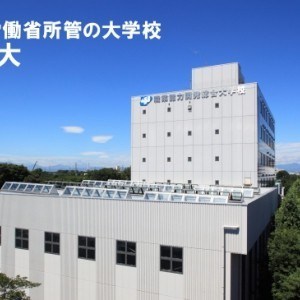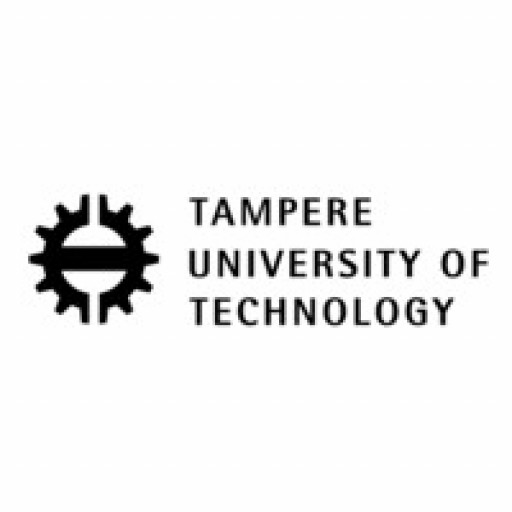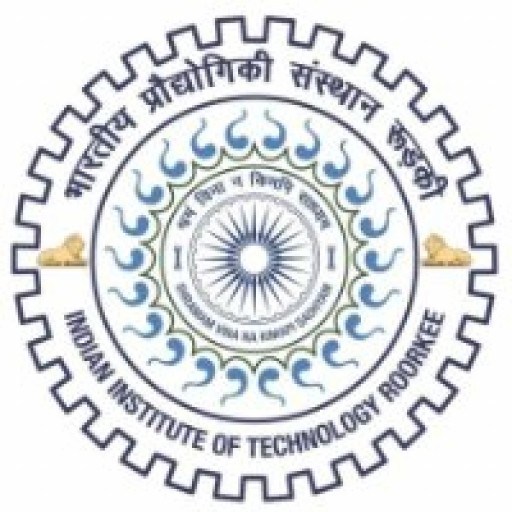Photos of university / #imperialcollege
The MSc in Deformation and Stress Corrosion Cracking in Ni Alloys at Imperial College London is a comprehensive advanced programme designed to equip students with cutting-edge knowledge and practical skills in understanding the mechanisms underlying deformation processes and stress corrosion cracking in nickel-based alloys. This specialised course is targeted at graduates seeking to deepen their expertise in materials science, corrosion engineering, and failure analysis within the context of high-performance alloys used in critical engineering applications such as aerospace, nuclear reactors, and chemical processing industries.
Throughout the programme, students will explore the fundamental principles of deformation mechanisms, including dislocation theory, strain hardening, and dynamic recrystallisation, alongside the influence of microstructure on mechanical properties. An emphasis is placed on the principles of stress corrosion cracking, examining environmental factors, metallurgical conditions, and stress states that contribute to crack initiation and propagation in nickel alloys. The curriculum combines theoretical lectures, laboratory experiments, and real-world case studies, fostering a strong understanding of how to diagnose, mitigate, and prevent material failures caused by these phenomena.
In addition to core modules, students have the opportunity to engage with advanced topics such as thermomechanical processing, residual stress analysis, and the development of corrosion-resistant alloys. The programme also offers practical training in techniques such as scanning electron microscopy (SEM), electron backscatter diffraction (EBSD), and fracture mechanics testing, providing essential skills for research and industry careers.
The MSc in Deformation and Stress Corrosion Cracking in Ni Alloys is delivered by world-leading experts in materials science and corrosion engineering, ensuring students receive a high-quality education rooted in the latest research and technological advancements. The course is ideal for recent graduates aspiring to specialise in materials failure analysis, design corrosion-resistant materials, or pursue a research career in academia or industry. Upon completion, graduates will be well-equipped to contribute to innovations in alloy development, structural integrity assessment, and the prevention of degradation phenomena that threaten critical infrastructure and safety.
This programme not only offers rigorous academic training but also facilitates professional development through industry collaborations, guest lectures by industry leaders, and opportunities for internships or research projects. Graduates from this course will be prepared to address some of the most challenging problems in materials engineering, working towards safer, more durable, and more reliable metal components in demanding environments across various sectors.
This programme focuses on the fundamental and applied aspects of deformation and stress corrosion cracking in nickel alloys, a critical area of materials science and engineering with significant implications for industries such as aerospace, energy, and chemical processing. Students will explore the mechanisms underlying plastic deformation, the impact of stress at the microscopic level, and the environmental factors that influence corrosion processes in nickel-based materials. The course covers a comprehensive range of topics including the crystallography of deformation, dislocation theory, fatigue, creep, and the role of microstructure in deformation behavior. Special emphasis is placed on understanding the initiation and propagation of stress corrosion cracking (SCC), a failure mode that poses serious challenges in the integrity and longevity of nickel alloys used in harsh environments.
Throughout the programme, students will gain insights into experimental techniques such as scanning electron microscopy (SEM), transmission electron microscopy (TEM), and stress analysis methods to investigate deformation and cracking phenomena at the nano and micro scale. They will also study computational modeling approaches that simulate the interactions between mechanical stress and environmental factors contributing to stress corrosion cracking. The programme fosters a multidisciplinary approach, integrating materials science, chemistry, and mechanical engineering principles to develop a nuanced understanding of material failure mechanisms.
Practical laboratory sessions complement theoretical learning, allowing students to perform tests on nickel alloys under various conditions to observe deformation behavior and measure susceptibilities to SCC. Case studies of real-world engineering problems will enhance understanding of failure analysis and reliability assessment. The programme prepares students for research careers or advanced roles in industry, providing them with the analytical tools and knowledge necessary to develop more resistant materials, improve maintenance strategies, and innovate mitigation techniques against deformation-related failures.
Students will also examine relevant standards and regulations, ensuring that their knowledge aligns with industry requirements for safety and performance. The curriculum encourages critical thinking and problem-solving skills, equipping graduates to address complex materials challenges confidently. By the end of the programme, students will be well-versed in the principles that govern deformation and stress corrosion cracking in Ni alloys and capable of applying this knowledge to advance materials performance in demanding engineering applications.
The program in Deformation and Stress Corrosion Cracking in Nickel Alloys at Imperial College London is designed to provide students with an in-depth understanding of the mechanical behavior of nickel-based materials under various stress and environmental conditions. The curriculum emphasizes the microstructural mechanisms that govern deformation processes and the complex interactions leading to stress corrosion cracking, a critical concern in many engineering applications such as aerospace, energy, and chemical processing industries. Students will explore advanced topics including fatigue, creep, phase transformations, and the influence of alloying elements on corrosion resistance and mechanical properties.
The program combines rigorous theoretical coursework with practical laboratory sessions and computational modeling to equip students with both conceptual knowledge and hands-on experience. coursework covers fundamental principles of materials science, thermodynamics, and fracture mechanics, while specialized modules delve into the specifics of deformation mechanisms in face-centered cubic (FCC) and other Ni alloy structures. The program also emphasizes the importance of corrosion science, electrochemical testing methods, and mitigation strategies for stress corrosion cracking.
Students are encouraged to engage in active research projects and collaborate with industry partners to apply their skills to real-world problems. The program aims to develop critical thinking and problem-solving capabilities, preparing graduates for careers in research, materials engineering, failure analysis, or advanced manufacturing. Entry requirements typically include a good undergraduate degree in materials science, metallurgical engineering, or a related discipline, and applicants are expected to demonstrate a strong foundation in physics and chemistry.
Throughout the program, students will be assessed via coursework, laboratory reports, presentations, and a final dissertation. The research component involves original investigation into deformation behaviors or cracking mechanisms in nickel alloys, often leveraging state-of-the-art experimental techniques and computational simulations. Graduates of this program will be well-positioned to contribute to innovations in high-performance materials development, corrosion prevention, and integrity assessment of critical components. The program duration is typically one year full-time or part-time equivalent, with opportunities for funding and scholarships available through various research councils and industry partnerships facilitated by Imperial College London.
Funding for the program in Deformation and Stress Corrosion Cracking in Nickel Alloys at Imperial College London is supported through a combination of scholarships, research grants, and departmental funding. The university offers a range of scholarships to both UK/EU and international students, including the Imperial College Doctoral College Scholarships, which provide full or partial tuition fee coverage along with a maintenance stipend to support students throughout their studies. Additionally, students may have access to specific research council grants, such as those from UK Research and Innovation (UKRI), which fund advanced materials research projects related to corrosion and deformation mechanisms in Ni alloys. The program also benefits from industrial partnerships, with funding and sponsorship from leading aerospace, energy, and manufacturing companies invested in the integrity and longevity of nickel-based components. This collaboration enables students to engage in cutting-edge research aligned with industry requirements, often including funded internships or collaborative projects. The departmental budget allocates resources for laboratories, specialized equipment, and materials necessary for experimental investigations into deformation behaviors and corrosion processes. Students are encouraged to apply for external funding sources, including prestigious fellowships and international scholarships, to supplement their financial support. Furthermore, the program's structure is designed to be accessible through various funding pathways, ensuring students can focus on their research without financial hardship. The university’s strong emphasis on research excellence and innovation ensures ample opportunities for students to secure competitive funding, facilitating their full participation in the development of new understanding and solutions in the field of nickel alloy corrosion and deformation.
The program in Deformation and Stress Corrosion Cracking in Ni Alloys at Imperial College London is designed to provide students with an advanced understanding of the mechanisms underlying material deformation and corrosion processes, particularly focusing on nickel-based alloys. The course covers a comprehensive range of topics, including the fundamental principles of stress corrosion cracking, the environmental factors influencing corrosion behavior, and the deformation mechanisms at micro and macro scales. Students explore the different types of deformation such as elastic, plastic, and creep, and analyze how these deformation modes interact with corrosive environments to initiate and propagate cracking in Ni alloys. Through a combination of theoretical lecture modules, laboratory experiments, and case studies, the programme aims to develop students’ skills in diagnosing, preventing, and mitigating stress corrosion cracking in industrial applications.
The curriculum emphasizes the importance of materials science, corrosion engineering, and mechanical behavior, ensuring students are equipped with the knowledge to address real-world problems encountered in the nuclear, aerospace, and chemical processing industries, where Ni alloys are widely used. Specialized modules include the study of phase transformations, residual stresses, and the role of microstructure in influencing corrosion susceptibility and deformation behavior. Practical sessions involve techniques such as electrochemical testing, microscopy, and stress analysis, providing hands-on experience that complements theoretical learning.
The program is suitable for graduate students or professionals seeking to deepen their expertise in materials degradation processes, failure analysis, and corrosion management. It prepares graduates for careers in research and development, quality assurance, failure investigation, and materials selection. The faculty involved are renowned experts in materials engineering and corrosion science, ensuring high-quality instruction backed by ongoing research activities. Students may also engage in research projects, fostering innovation and contributing to advancements in the field of corrosion-resistant alloys. Collaborations with industry partners offer opportunities for internships and applied research. Upon completion, students will be well-prepared to address challenges related to the integrity and longevity of Ni alloys in critical engineering applications.









